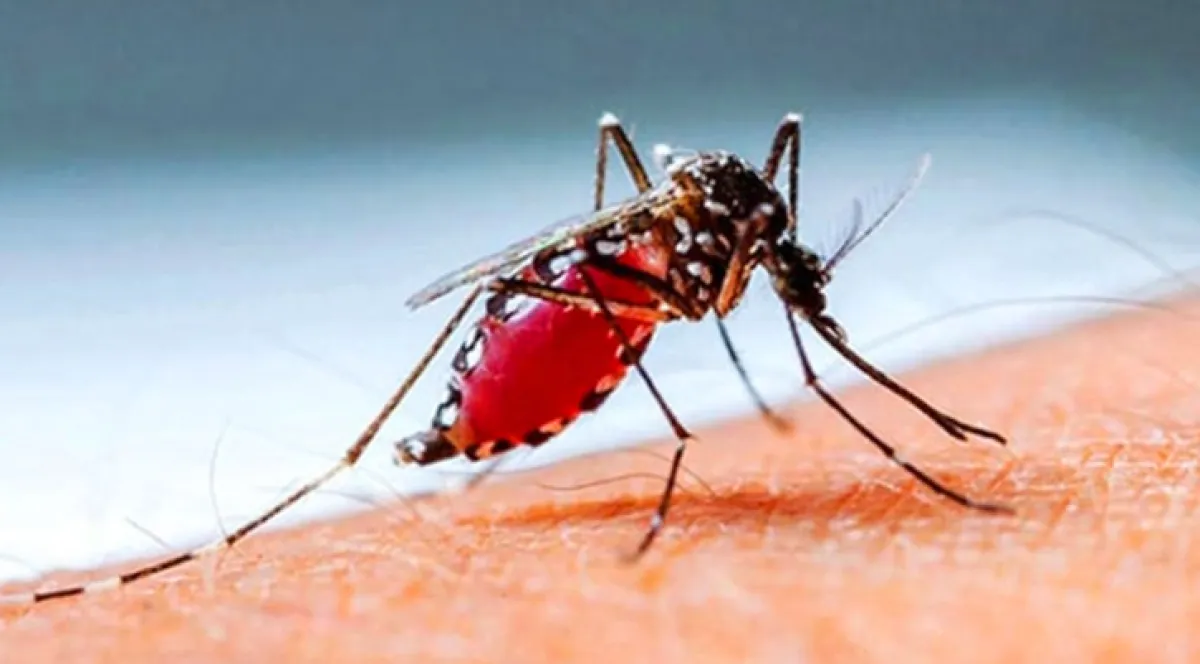
Dengue infections are rising sharply in Khulna Division exposing gaps in hospital preparedness and treatment capacity.
In just one week leading up to July 4, at least 117 new patients were hospitalised in 10 districts in the division, according to the Directorate General of Health Services (DGHS).
Last year, more than 10,000 people in Khulna Division contracted dengue, with 35 fatalities reported.
Health officials are now expressing concern over an unusually early spike in cases this year, with many patients showing atypical symptoms such as severe shivering, vomiting, and extreme fatigue.
Although dengue season typically runs from August to December the rise in infections this year has begun as early as June and July.
Hospitals are admitting new patients daily, they said.
Tanzila Akter, currently undergoing treatment at Khulna Medical College Hospital, said, “After the fever started, my body began to shake and I started vomiting. The doctors diagnosed it as dengue. I’ve never felt anything like this before.”
In another case, the sister of Solaiman Mia, a dengue patient from Sharankhola in Bagerhat, said, “My brother works in the fields. He might have been bitten by a mosquito there. We first took him to the upazila hospital but when the fever didn’t subside and tests confirmed dengue we had to bring him to Khulna.”
116 medical teams to provide treatment to Khulna dengue patients
Relatives of several patients have raised concerns about the lack of dedicated dengue treatment facilities.
Rafiqul Islam, a caregiver, said, “There are no separate arrangements for dengue patients in the hospital. Without isolation, there’s a risk to others too.”
Doctors said unlike previous outbreaks, many of this year’s dengue patients are experiencing fever along with intense shivering, vomiting, and extreme fatigue.
In neighbouring coastal district Barguna, dengue has reached alarming levels, with health experts linking the outbreak to stored rainwater used due to the scarcity of clean water in the salinity-hit district.
Similar practices of water storage in drums, tanks, and pots are common in parts of coastal districts Khulna, Satkhira, and Bagerhat, increasing the risk of Aedes mosquito breeding.
Advocate Babul Hawlader, Member Secretary of the Khulna Citizens' Committee, expressed dissatisfaction with the local authorities.
“Despite the looming threat, the city corporation’s anti-mosquito drive appears to be weaker than last year. Hospital preparedness is also lacking,” he said.
Dr Kazi Didarul Islam, Professor at the Biotechnology and Genetic Engineering Discipline of Khulna University, said, “This year, we’re seeing an early spike in dengue cases, and new symptoms suggest a different strain—possibly dengue serotype 1. Standard larvicide spraying alone will not be effective. A comprehensive and coordinated response is essential, and the time to act is now.”
Meanwhile, Dr Md Mojibur Rahman, Director of DGHS in Khulna Division, said that directives have been given to all districts to intensify mosquito control measures and keep hospitals ready to handle a surge in patients.SOURCE : UNB
